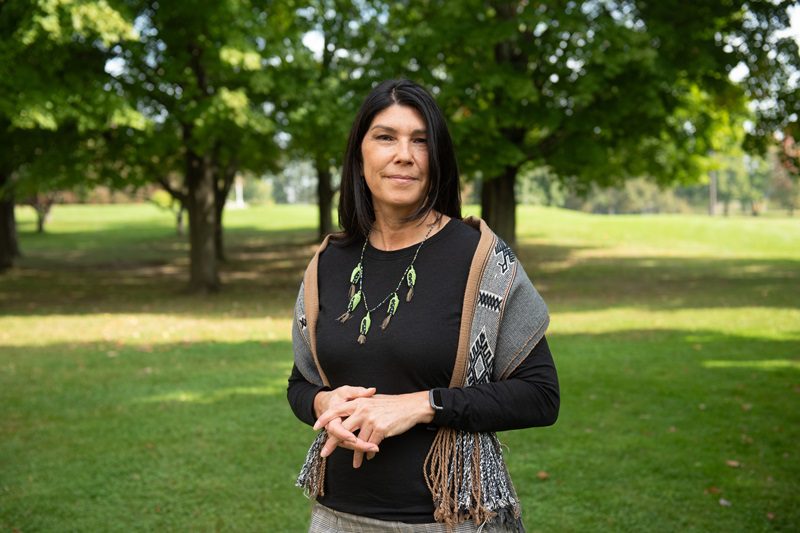Treena Wasonti:io Delormier (Chair)
April 22, 2025
Treena Wasonti:io Delormier, PhD, PDt is Kanienke’há:ka (Mohawk) from the Mohawk Territory of Kahnawá:ke. She is an Associate Professor in the School of Human Nutrition at McGill University and serves as the Director of McGill’s Centre for Indigenous Peoples’ Nutrition and Environment (CINE).
Prof. Delormier’s research focuses on public health nutrition and Indigenous Peoples, with a specific emphasis on health promotion interventions that address the social determinants of health, particularly within the historical context of colonialism. She uses qualitative and Indigenous community-based methodologies in her research and is committed to mentoring and training students and community researchers to build capacity in Indigenous health research.
Prof. Delormier has been deeply involved with the Kahnawá:ke Schools Diabetes Prevention Program (KSDPP), a community-university partnership, and contributed to the development of the KSDPP Code of Research Ethics in 1995. This code, based on traditional Mohawk decision-making, has served as a model for ethical research with Indigenous communities across Canada.
She holds a master’s degree in nutrition from McGill University and a PhD in public health from Université de Montréal.
